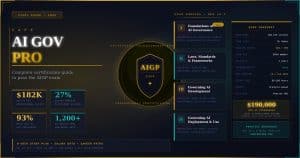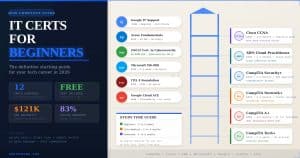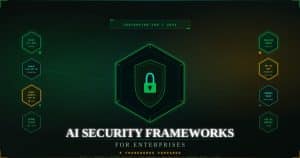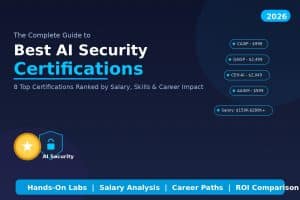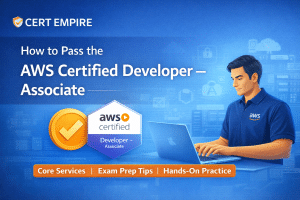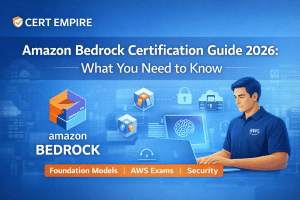Thinking about taking the AWS CLF-C02 exam? Whether you’re new to cloud computing or looking to validate your AWS knowledge, this certification is a great way to kickstart your cloud journey. But with so much information, preparing for the exam can feel overwhelming. The good news? With the right approach and study plan, you can pass with confidence.
In this guide, we’ll walk you through practical study tips, useful resources, and smart strategies to help you ace the CLF-C02 exam without the stress. Let’s get started!
Getting Started with Your AWS certified cloud practitioner Journey
Jumping into the AWS cloud practitioner certification? AWS is everywhere these days, and getting certified can be a smart move. The CLF-C02 cert is a solid starting point if you’re looking to understand the basics of cloud computing, AWS services, and how businesses are using them. Whether you’re aiming for a new job, upskilling, or just want to prove you know your stuff, this cert can open doors.
Cloud tech isn’t just for big companies anymore. Small businesses, startups, and even solo developers are using AWS to run websites, apps, and databases. Knowing how AWS cloud platform works can help you stay relevant in the job market and make you a more valuable team member. This cert helps you build that foundation without needing years of scalable data science solutions experience.
Why the Cloud Practitioner CLF-C02 Certification Matters Right Now
AWS cloud practitioner exam keeps growing, and more companies are moving their systems to the cloud. That means they need people who understand cloud concepts, pricing, security, and how AWS works at a basic level. Employers often look at certs as proof that you can speak their language and get things done.
Getting the CLF-C02 cert can help you:
- Show recruiters and hiring managers that you’re serious about cloud computing.
- Prove you understand AWS certification basics, even if you don’t have hands-on experience yet.
- Build confidence before tackling more advanced AWS certs like Solutions Architect.
AWS certs aren’t just about showing off a badge. They teach you real-world skills that can help with troubleshooting, planning cloud solutions, and understanding how different services fit together. Plus, AWS changes a lot, and staying updated about AWS cloud concepts through certs can help you keep up. If you’re considering this certification, here’s everything you need to know about the AWS Cloud Practitioner CLF-C02 exam to get started.
How This Exam Lays the Groundwork for Your AWS Career
Starting with the CLF-C02 isn’t just about passing an exam; it’s about getting a solid grip on cloud fundamentals. Once you’ve got that, moving up to more advanced certs like AWS Solutions Architect or SysOps becomes easier.
Here’s why starting with the CLF-C02 makes sense:
- It covers the basics: You’ll learn about AWS services, cloud concepts, and how pricing works, which are things every AWS user should know.
- It helps with your next steps: Once you know the basics, learning about storage, databases, and security in detail will make more sense.
- It’s beginner-friendly: Unlike some technical certs, CLF-C02 doesn’t expect you to have coding skills or deep IT knowledge.
Many people use this cert to switch into cloud-related roles. Whether you’re from an IT background or not, it’s an easy way to get your foot in the door.
For a deeper breakdown of career opportunities and pay scales, check out our guide on Jobs and Salary for CLF-C02 Professionals.
Key Topics You’ll See in the Exam (And Why They Matter)
The CLF-C02 exam isn’t just random cloud stuff. It focuses on practical topics that businesses actually use. You’ll see questions about:
- AWS core services: Things like EC2 (virtual servers), S3 (storage), and RDS (databases). These are the building blocks of AWS, and understanding them helps in real-world situations.
- Cloud concepts: You’ll need to know what scalability, elasticity, and high availability mean and why they matter for businesses.
- Security and compliance: AWS puts a big focus on security, so expect questions about IAM (Identity and Access Management) and data protection.
- Pricing models: Understanding how AWS charges customers and how to optimize costs is a big deal for companies looking to save money.
If you’re wondering whether these topics will be useful beyond the exam, yes, they will. Even if you don’t plan on becoming a cloud architect, having a clear understanding of these areas will help in roles like project management, business analysis, and even sales.
Not sure if CLF-C02 or a Microsoft cert is right for you? Our CLF-C02 vs. AZ-204 Certification Comparison explains the differences between AWS entry-level and Azure developer paths.
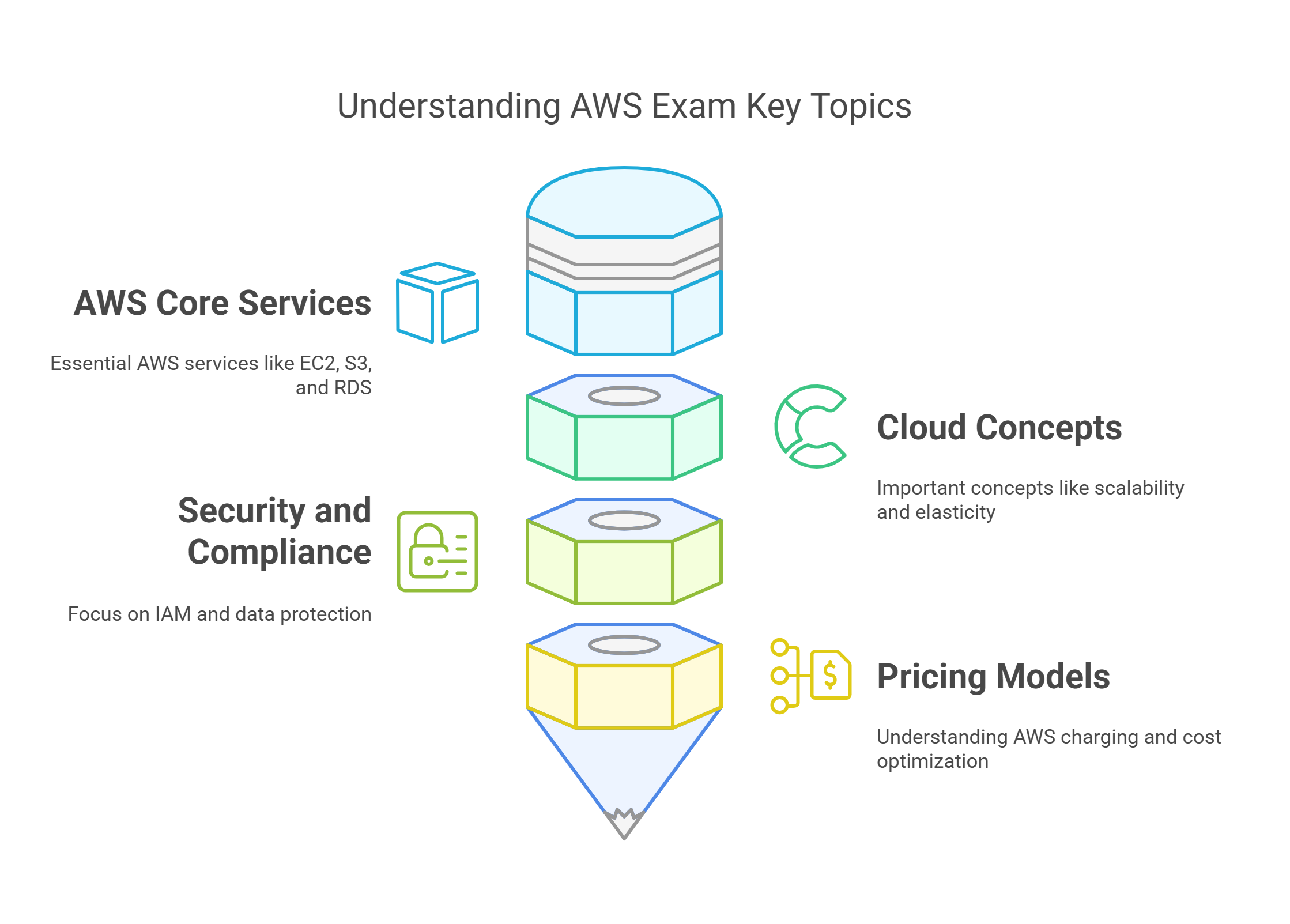
Breaking Down the CLF-C02 Exam Blueprint
Getting familiar with the CLF-C02 exam structure is crucial to preparing effectively. This exam isn’t just about memorizing facts; AWS wants you to understand core cloud concepts and how their services solve real business challenges. The questions test your knowledge of AWS services, pricing, security, and how everything fits into the cloud ecosystem.
Before diving into the study material, it’s important to break down the exam into key areas so you can focus on what matters most. The CLF-C02 blueprint outlines specific domains that AWS expects you to know inside and out. If you’re leaning toward security roles, read our CLF-C02 vs. AZ-500 Certification Comparison to see which certification fits your goals.
What AWS Wants You to Know: A Closer Look at Core Domains
The CLF-C02 exam is built around foundational AWS concepts, and understanding the core domains will help you see where to focus your efforts. Here’s what AWS covers in this cert:
Cloud Concepts (25%)
- AWS wants you to grasp basic cloud principles like elasticity, scalability, fault tolerance, and cost-efficiency.
- Expect questions about the benefits of cloud computing compared to traditional on-prem setups.
- You’ll need to understand the differences between IaaS, PaaS, and SaaS models.
Security and Compliance (30%)
- AWS takes security seriously, so this section has a lot of weight.
- Expect to see topics on Identity and Access Management (IAM), encryption, shared responsibility model, and security best practices.
- Questions will also focus on compliance standards like GDPR, HIPAA, and AWS’s security services such as GuardDuty and AWS Shield.
Cloud Technology and Services (33%)
- This is the core of the exam, covering the most widely used AWS services like EC2, S3, RDS, and Lambda.
- You’ll need to know when to use which service and how they integrate to create scalable solutions.
- Familiarity with key AWS management tools like CloudWatch and CloudTrail is also important.
Billing, Pricing, and Support (12%)
- AWS has various pricing models, and you should know how they work. Expect questions on pay-as-you-go, reserved instances, and savings plans.
- Understanding the AWS Free Tier and how organizations can optimize costs will help you in this section.
- You’ll also need to know about the different support plans AWS offers and when they make sense for businesses.
Each of these areas ties directly into real-world AWS usage. Understanding them well can help not just with the exam, but with practical cloud-related tasks at work.
For those interested in cloud administration, this CLF-C02 vs. AZ-104 Certification Comparison highlights which cert aligns better with IT and sysadmin career paths.
Weightage of Each Section and What to Prioritize
Not all sections of the exam carry the same weight, so it’s smart to focus on high-impact areas first. Here’s how the weightage breaks down:
Cloud Concepts – 25%: Important but mostly theoretical; review key cloud benefits and service models.
Security and Compliance – 30%: One of the heaviest sections, and for good reason. Understanding IAM and compliance basics should be a top priority.
Cloud Technology and Services – 33%: This section will likely have the most practical questions, so invest extra study time here.
Billing and Pricing – 12%: Even though it’s the smallest section, don’t ignore it—understanding cost optimization is valuable in real-world scenarios.
If you’re short on time, focus heavily on Cloud Technology and Security, as they carry the most weight and appear in practical business situations. Once you’re comfortable with those, work on understanding cloud fundamentals and pricing to round out your knowledge.
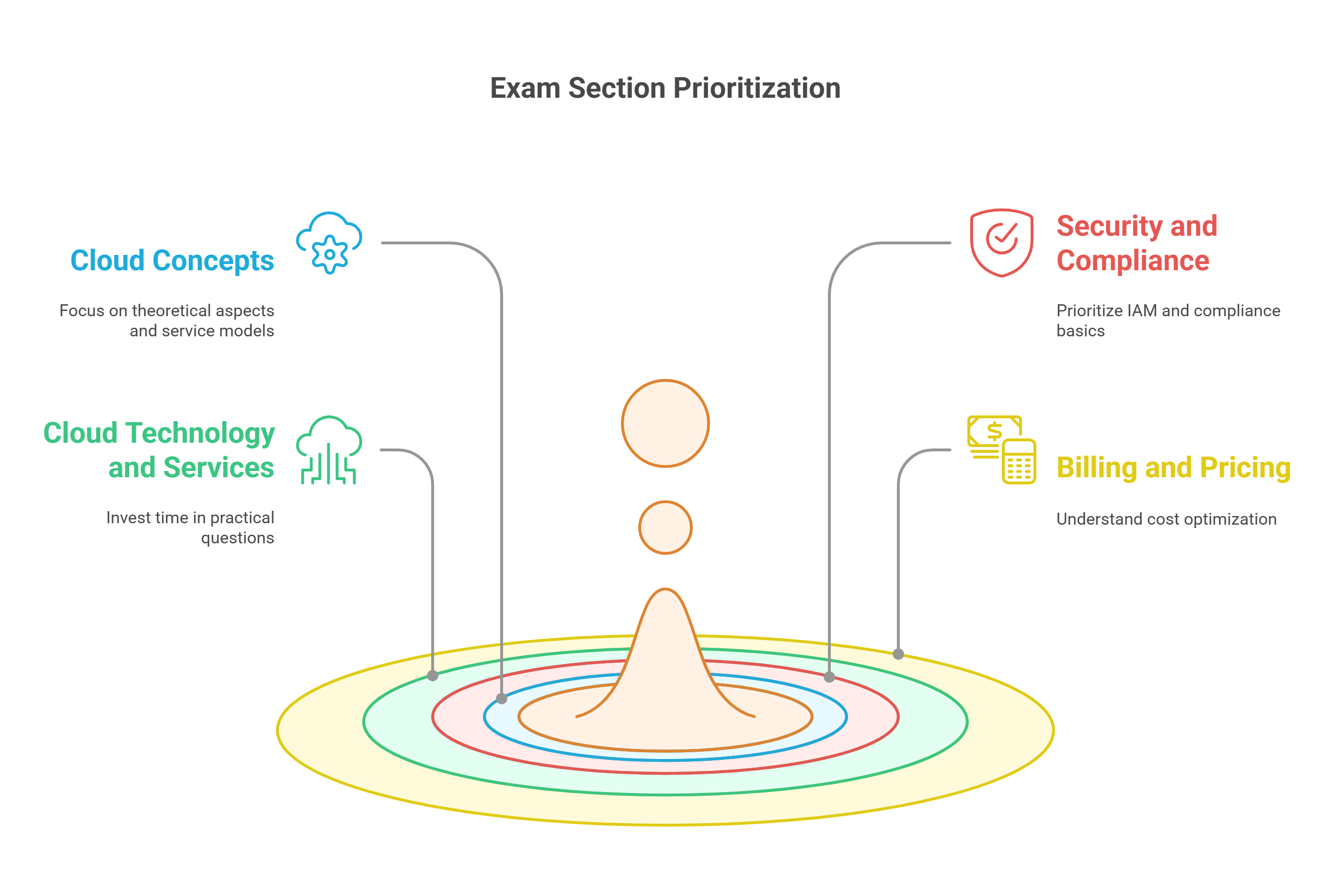
Building a Personalized Study Plan That Fits Your Schedule
Everyone’s daily routine is different, and trying to follow a one-size-fits-all study schedule often leads to frustration. A good study plan is flexible and realistic based on your time, energy, and personal commitments. Here’s how you can build a plan that works for you:
Set Clear Goals: Decide when you want to take the exam and break down topics into weekly targets. Having a deadline can keep you motivated.
Divide and Conquer: Break topics into small, manageable chunks, cloud concepts, security, pricing, etc. and focus on one at a time.
Choose Your Study Hours Wisely: Some people learn better in the morning, others at night. Find your productive hours and stick to them.
Mix It Up: Don’t just read, watch videos, take quizzes, and practice hands-on to keep things interesting.
Track Your Progress: Use checklists or a simple spreadsheet to monitor which topics you’ve covered and where you need more review.
Take Breaks: Burnout is real, and studying for hours without breaks can backfire. Use short study sessions with regular breaks to stay fresh.
By creating a personalized plan, you’ll avoid cramming at the last minute and retain information better. The goal is steady progress, not rushing through materials.
Using AWS Official Resources vs. Third-Party Study Guides
When it comes to study materials, you’ll find two main sources: AWS’s official content and third-party guides. Both have their advantages, and using a combination can give you the best of both worlds.
AWS Official Resources:
AWS Training and Certification Portal: Free and paid courses directly from AWS, covering all core topics.
AWS Whitepapers: In-depth documentation on best practices, security, and architecture frameworks.
AWS FAQs: Each service has a FAQ page that often contains useful exam-related info.
AWS Skill Builder: An interactive platform with free and paid training modules.
These resources provide accurate and up-to-date information but can sometimes be dense and hard to digest for beginners.
Third-Party Study Guides:
Udemy and A Cloud Guru: These platforms offer courses that simplify AWS concepts and focus on exam-specific content.
Practice Exams: Providers like Whizlabs and Tutorials Dojo offer exam-style questions to test your readiness.
YouTube Tutorials: Many experts provide free walkthroughs and breakdowns of complex topics in an easy-to-understand manner.
Study Groups and Forums: Platforms like Reddit and LinkedIn have communities where learners share tips and experiences.
While third-party guides simplify learning, they might not always be 100% aligned with the latest AWS exam updates. It’s always a good idea to cross-check important concepts with AWS’s official documentation.
Hands-On Practice: The Key to Mastering AWS Concepts
AWS isn’t just theory, it’s about knowing how things work in practice. Many exam questions are scenario-based, meaning they test how well you can apply knowledge in real-world situations. The best way to prepare for these is by getting hands-on experience with AWS services.
Here’s how to get started:
Create a Free AWS Account: AWS offers a free tier with access to core services like EC2, S3, and Lambda. This lets you experiment without spending money.
Try the AWS Management Console: Get familiar with navigating the interface and setting up basic services.
Follow Step-by-Step Labs: AWS offers hands-on labs that walk you through different use cases, like launching virtual machines or setting up cloud storage.
Experiment with IAM Policies: Security is a big part of the exam, so practice setting up roles, users, and permissions.
Monitor and Optimize Costs: Try out AWS’s billing dashboard to understand how different pricing models work.
Even if you don’t have a technical background, hands-on practice will give you the confidence to answer practical questions correctly.
Best Exam Dumps by Cert Empire
Practice makes perfect, and using reliable exam dumps can help reinforce your learning by showing you what kind of questions to expect. Cert Empire is known for providing up-to-date and accurate exam dumps that closely reflect the actual CLF-C02 exam. You can learn more about Cert Empire’s CLF-C02 exam dumps on their website. Their dumps can be a helpful resource to:
- Understand Exam Patterns: Get a feel for how AWS structures questions and what to focus on.
- Identify Weak Areas: Practice tests help pinpoint topics where you need improvement.
- Boost Confidence: Going through realistic questions before the exam can reduce test-day anxiety.
Final Thoughts!
Earning the AWS CLF-C02 certification is just the beginning of an exciting journey into the cloud computing world. It gives you a strong foundation, opening doors to new career opportunities and laying the groundwork for more advanced certifications. Whether you’re looking to transition into a cloud-related role, boost your current job prospects, or simply expand your technical knowledge, this certification is a valuable stepping stone. The key to long-term success lies in staying curious, practicing regularly, and keeping up with AWS updates. As you move forward, continue exploring, experimenting, and building on your AWS skills, there’s always something new to learn in the cloud space.
Frequently Asked Questions!
How long does it take to prepare for the CLF-C02 exam?
It depends on your background, but most people take 2-6 weeks with consistent study, focusing on key AWS concepts and hands-on practice.
What is the passing score, and how is it calculated?
The passing score is 700 out of 1000, and AWS uses a scaled scoring method, meaning different questions carry different weights.
Can I take the exam online, and what are the system requirements?
Yes, the exam can be taken online via Pearson VUE with a stable internet connection, a webcam, and a distraction-free environment.
Are dumps helpful, or should I stick to official resources?
Dumps can provide practice but may not reflect the latest updates; it’s best to use AWS official resources and reputable third-party materials for reliable learning.
How often should I retake practice tests before the actual exam?
Aim to take practice tests every few days and review mistakes carefully; repeat them until you consistently score above 80%.
Is there a recommended order to tackle the exam domains?
Start with Cloud Concepts and Security, as they form the base for understanding AWS, then move on to Services, Billing, and Pricing.


















